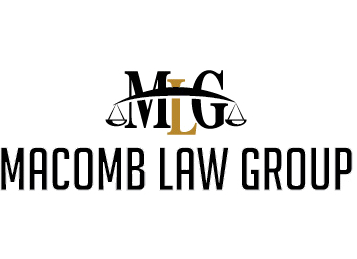American consumers have grown used to seeing warning labels on everything from machinery to mattresses. Sometimes, the warnings can even seem a little silly. But there is a reason why there are warning labels on everything: companies continue to produce dangerous products.
Product Liability and Failure to Warn
When consumers are hurt because something they purchased does them harm, Michigan law says they may be able to file a product liability lawsuit. These cases say that a product was unreasonably dangerous, but the manufacturer sold it anyway. Product liability usually falls into at least one of three categories:
- Manufacturing defects (something wasn’t built to the proper specifications)
- Design defects (the thing was built according to specifications that contained a danger)
- Failure to warn (the manufacturer didn’t disclose an inherent danger in the product)
Failure to warn is sometimes also called a marketing defect. The theory behind these cases is that, if a manufacturer cannot reasonably make the product safe, it can still be responsible for letting the consumer know about the dangers.
Warning Labels are Never as Good as Safe Products
In most product liability cases, the plaintiff (the person injured) raises both a design defect and failure to warn claim. That’s because in an ideal world every manufacturer would be responsible for making its products safe for the average user. But courts have put limits on the lengths manufacturers must go to in protecting their users. If creating a safe product would take too much time, effort, or make the product to expensive, courts may determine that the danger is simply a part of the product. In those cases, a manufacturer may still be held responsible for the injury caused by the dangerous product if it did not use appropriate warning labels.
When Manufacturers Need to Use Warning Labels
The risks and reasonable safety measures are different for each product, and each case. However, in general, manufacturers are required to warn consumers about dangers that a reasonable person would not expect that it knows or should have known about at the time of the manufacture and sale. A failure to warn claim may be appropriate if:
- There was no warning at all
- The warning didn’t let the consumer understand the danger
- The warning was conveyed in a way a reasonable person wouldn’t see, receive, or understand
One reason why it can seem like there are warning labels on everything is that manufacturers are also required to warn against “reasonably foreseeable misuse” of their products. For example, no one intends for children to play in the plastic bags consumer goods are shipped in. But it happens. When it does, there is a danger of suffocation that may not be obvious to a reasonable person. That’s why every plastic bag has a warning label against suffocation.
When a Warning Label Isn’t Necessary
Despite how it may seem, manufacturers don’t have to put warning labels on everything. There are limits to a product liability case based on failure to warn, including:
- Warning of obvious dangers
- Warnings connected to the intended use of tools (saws are sharp, guns shoot bullets, etc.)
- Warning of unforeseeable dangers
- Warning of unlikely types of injuries
- Warnings related to the actions of others
- Warning of dangers discovered after the sale of goods (however, consumer protection requirements for recalls may apply)
- Warning employees of dangers previously told to employers
- Warning of risks connected with simple tools
Because most of these limits depend on what a reasonable person would know or expect, product liability cases often come down to a question for the jury. Because these cases are so dependent on the facts, anyone injured because of a consumer product may be able to file a product liability case. Whether that case will be successful depends on the product involved, the injury, the warnings, and what was reasonable in the case.
At Macomb Law Group, our product liability attorneys know a missing warning label can lead to serious injury. If you have been hurt by a dangerous product, contact Macomb Law Group and get our team working for you.
Author
-

I began working in personal injury law more than 20 years ago, starting as a law clerk during my first year of law school at Wayne State University School of Law in Detroit. After passing the bar exam in 2002, I went on to become a partner at a series of law firms before opening the Macomb Law Group in 2017.
View all posts

